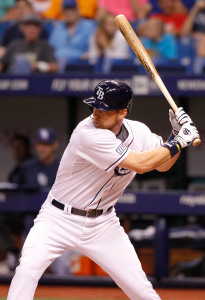It had seemed that Major League Baseball and the MLB Players Association were largely seeing eye to eye on alterations to their preexisting agreements to account for the coronavirus pandemic. The sides struck a bargain in late March to account for numerous significant matters of concern, including part-season salaries.
[RELATED: MLB Player Contracts In A Shortened Or Canceled Season]
The unity may not be long-lived. With little prospect for hosting games with fans in attendance in the near term, league and union are now embroiled in a battle over the meaning of the deal they worked out less than one month ago.
Recent reporting indicated that MLB does not believe the recent agreement resolves the matter of player salaries in the event of TV-only games. Today, union chief Tony Clark announced that he holds precisely the opposite position, as Ronald Blum of the Associated Press reports.
The league claims the question of salary in a no-attendance season simply hasn’t been decided, pointing to a clause providing that the sides agree to “discuss in good faith the economic feasibility of playing games in the absence of spectators or at appropriate substitute neutral sites.” By this reading, the entire original agreement related only to the resumption of a typical season.
The player side says the agreement provides for a pro rata reduction of salary to match the number of games played, regardless of whether fans are in the stands. Clark tells Blum: “Players recently reached an agreement with Major League Baseball that outlines economic terms for resumption of play, which included significant salary adjustments and a number of other compromises. That negotiation is over.”
It’s not surprising that the sides would’ve found it hard to line up on this particular point. Playing without paying fans was obviously foreseeable, since it made it into the deal. Surely this didn’t sneak up on anyone.
But it’s frankly bizarre to see such a misalignment of expectations regarding an agreement that was only just negotiated. The actual dispute boils down to the question whether new negotiations over “economic feasibility” would involve a full reconsideration of player salaries or, rather, that such feasibility would take place regarding only other matters, with the salary issue already decided. It seems there are oddities in the positions of both sides, based upon what has been aired publicly.
In the framing of deputy commissioner Dan Halem, the original agreement was one in which the sides “agreed that the season would not commence until normal operations — including fans in our home stadiums — were possible.” If not, there’d be a need to negotiate a whole new “framework to resume play without fans.”
It may well be possible — even preferable — to read the agreement as the league suggests. But in that case, why not make it all the more explicit? We haven’t yet seen the full agreement in its finished form, but the elements that have been reported suggest it’s less than crystal clear in its structure. It also seems strange that the sides would’ve focused so much energy solely on the function of a “normal” season when that seemed so unlikely to occur.
At the same time, on the union side, it’s hard to imagine the potential ambiguity wasn’t spotted. If the MLBPA really believed the agreement ensured full salaries (on a game-by-game basis) regardless whether fans were in attendance, why would it have allowed such an “economic feasibility” proviso to inject doubt?
Could it be that both sides agreed to disagree? Perhaps, but if that was actually the mutual understanding, then why overlay contractual uncertainty onto the preexisting, underlying state of affairs? If instead one side or the other has been caught by surprise by the other’s interpretation, that’s equally hard to understand.
Perhaps we’re still just seeing posturing. But there’s no question the league and union still have significant issues to sort through in advance of a potential resumption of play, especially if (as seems exceedingly likely) it’ll occur without spectators.
This was always going to be complicated. Holding contests without fans will require tricky logistics, added costs and risks, and atypical economic calculations. And there’s already an important background consideration here. Remember that talk of the uniform player contract, which provides the commissioner power to “suspend” contracts “during any national emergency during which Major League Baseball is not played”? That’s clear enough in some instances. But it’s less obvious precisely how the contracts would be re-started. And what happens if the emergency declaration is formally lifted, but baseball doesn’t resume play … or does so on a modified basis? It’s hard to read this clause as providing that major economic interferences would mandate adjustments of already guaranteed salaries, particularly if there’s no formal nationwide emergency declaration.
There was already ample potential for interpretive disputes revolving around that language, the entirety of the Basic Agreement, and the broader bargaining relationship in these unusual circumstances. A mutually satisfactory resolution never seemed straightforward. And now, the presence of an intervening, already-disputed agreement may only add to the potential for friction.



